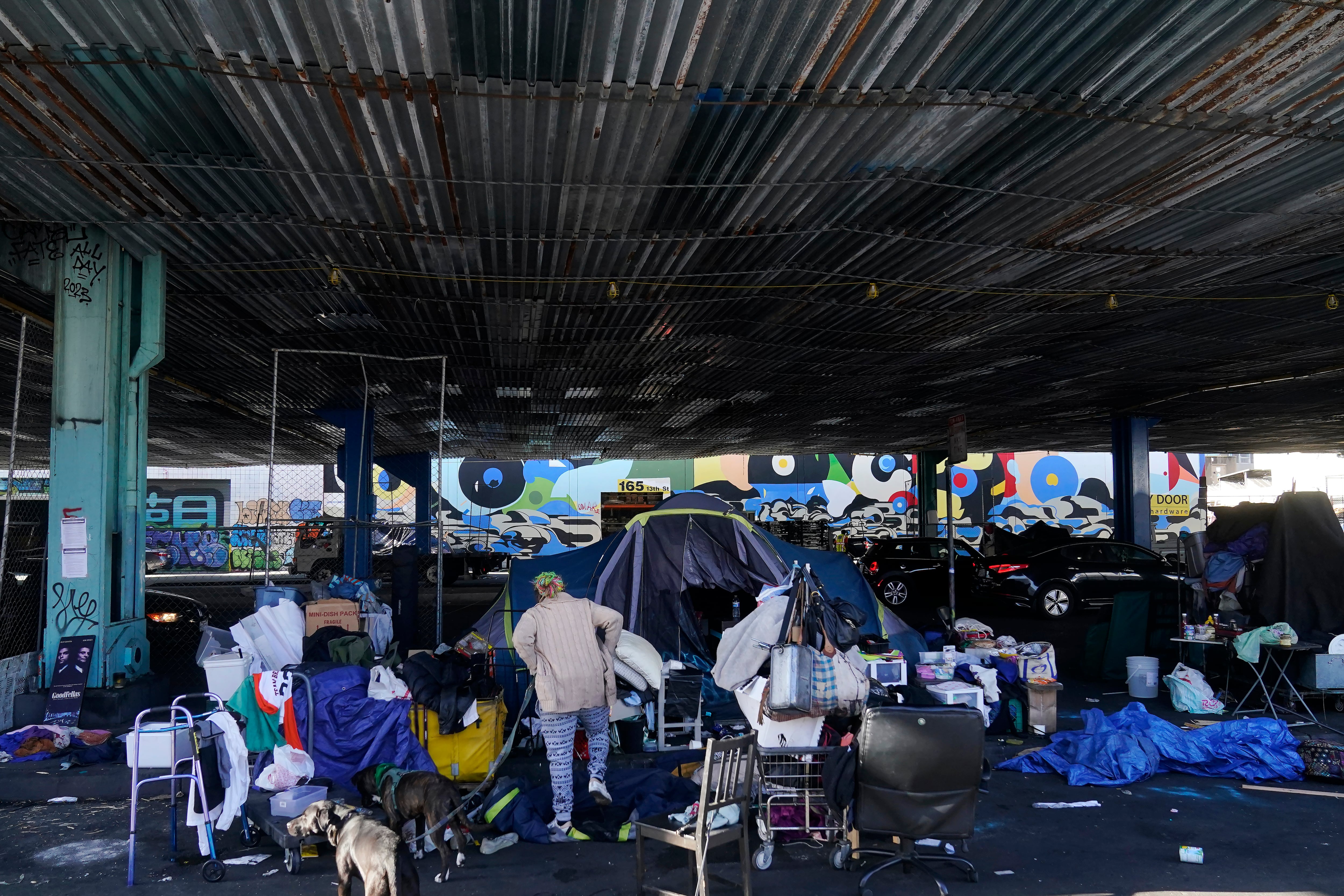Veterans advocates are warning that arguments presented to the Supreme Court on Monday regarding laws criminalizing homelessness could have a troubling impact on efforts to help former troops struggling to find stable housing.
The case — Johnson v. City of Grants Pass — centers on an Oregon town where officials approved regulations fining people $295 for sleeping outside in public areas, part of an effort to manage homeless encampments in the city’s parks. Offenders can face jail time for multiple violations.
Courts have generally ruled against the city laws, arguing that individuals cannot be punished simply for being homeless, particularly if adequate support services are not available. Supreme Court justices heard arguments from plaintiffs and defendants on Monday morning and are expected to deliver a final ruling later this summer.
The legal showdown comes just a few months after the Department of Housing and Urban Development announced a nationwide increase in homelessness among veterans from 2022 to 2023, the most recent data available.
RELATED

The 7% jump in homelessness among veterans was less than the 12% rise in homelessness among the general population, yet it was still concerning for advocates given the focus and financial resources devoted to the problem in recent years.
Earlier this year, 44 veterans advocacy groups filed an amicus brief with the Supreme Court on the Grants Pass case, arguing against the financial and criminal penalties.
“Their ruling could have dire consequences for unsheltered veterans,” Kathryn Monet, CEO of the National Coalition for Homeless Veterans, said in a statement.
“It is absurd to think that the use of civil penalties against veterans and others experiencing homelessness will do anything other than harm people for being impoverished and make it harder for them to get back on their feet.”
Retired Army Lt. Col. Elizabeth Kubala, executive director of Syracuse University’s Veterans Legal Clinic (which also signed on to the amicus brief), said for many veterans, accessing support services is a challenge even under ideal circumstances.
“We’ve seen firsthand the inequities rendered in the lives of homeless veterans when complex legal battles and unjust rulings prevent them from receiving critical benefits,” she said, adding that the case speaks to “the importance of ensuring that criminal enforcement actions do not further complicate access to housing, medical care and benefits.”
The Associated Press reported that dozens of demonstrators protested outside the court on Monday, some holding signs which read “housing not handcuffs” and “housing solves homelessness.”
Veterans seeking help with homelessness or related financial problems can call 877-424-3838 for help or visit the department’s website.
Leo covers Congress, Veterans Affairs and the White House for Military Times. He has covered Washington, D.C. since 2004, focusing on military personnel and veterans policies. His work has earned numerous honors, including a 2009 Polk award, a 2010 National Headliner Award, the IAVA Leadership in Journalism award and the VFW News Media award.





